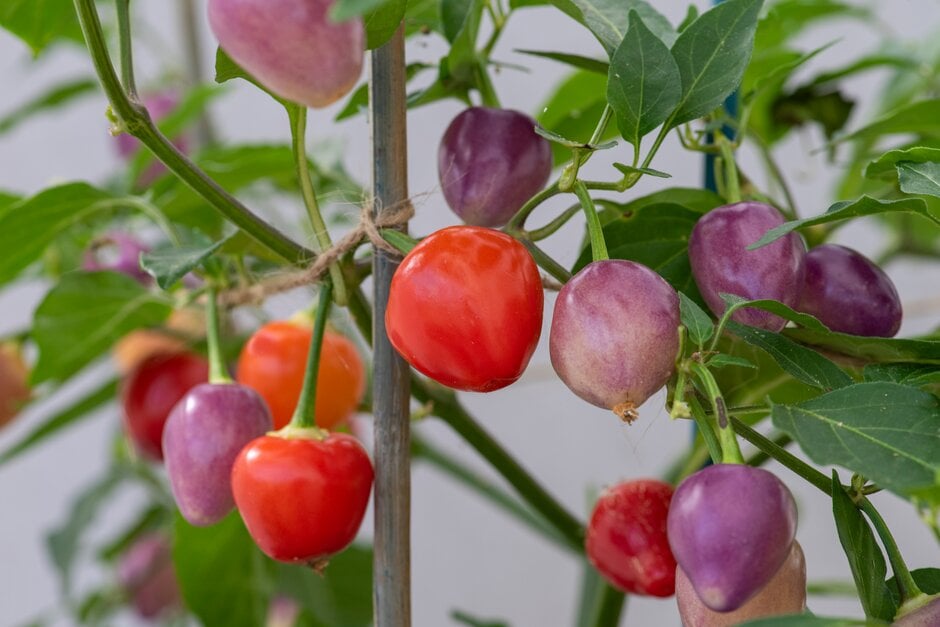Capsicum baccatum 'Spangles'
A bushy annual with ovate, mid-green leaves. As both an ornamental and edible variety, it produces small, attractive white flowers with green markings from the leaf axils in summer, which go on to produce colourful, thick-skinned, round edible fruits. These change from pale purple to white to orange then finally bright red as they ripen. Medium-hot flavour and perfect for making chilli sauce

Buy this plant
Size
Ultimate height
0.5–1 metresTime to ultimate height
1 yearUltimate spread
0.5–1 metresGrowing conditions
Moisture
Moist but well–drainedpH
Neutral, AcidColour & scent
| Stem | Flower | Foliage | Fruit | |
| Spring | Green | |||
|---|---|---|---|---|
| Summer | White Green | Green | Purple White Orange Red | |
| Autumn | ||||
| Winter |
Position
- Full sun
Aspect
South–facing or West–facing
Exposure
Sheltered Hardiness
H1CBotanical details
- Family
- Solanaceae
- Native to GB / Ireland
- No
- Foliage
- Deciduous
- Habit
- Bushy
- Potentially harmful
- Humans/Pets: Irritant if eaten, skin/eye irritant. Wear gloves and other protective equipment when handling For further information and contact numbers regarding pets, see the HTA guide to potentially harmful plants
- Genus
Capsicum are annual or perennial plants, with simple, alternate leaves, and tubular or bell-shaped flowers. They are grown for their glossy, many-seeded edible fruits, including chilli and bell peppers, and as indoor ornamental plants
- Name status
Unresolved
How to grow
Cultivation
Grow in a peat-free, loam-based compost in bright, filtered light. When in growth, water freely and apply a balanced liquid fertiliser every 10 days until fruit begins to colour. See how to grow: chilli peppers for further advice
Propagation
Propagate by seed sown at 21ºC (70ºF) in late winter
Suggested planting locations and garden types
- Patio and container plants
- Conservatory and greenhouse
- Edible fruit
Pruning
Pinch out growing tips to encourage branching
Pests
May be susceptible to glasshouse red spider mite and aphids
Diseases
May be susceptible to virus diseases, fungal wilt, anthracnose and powdery mildews
Love gardening
Sign up to receive regular gardening tips, inspiration, offers and more
View our Privacy Policy
Get involved
The Royal Horticultural Society is the UK’s leading gardening charity. We aim to enrich everyone’s life through plants, and make the UK a greener and more beautiful place.